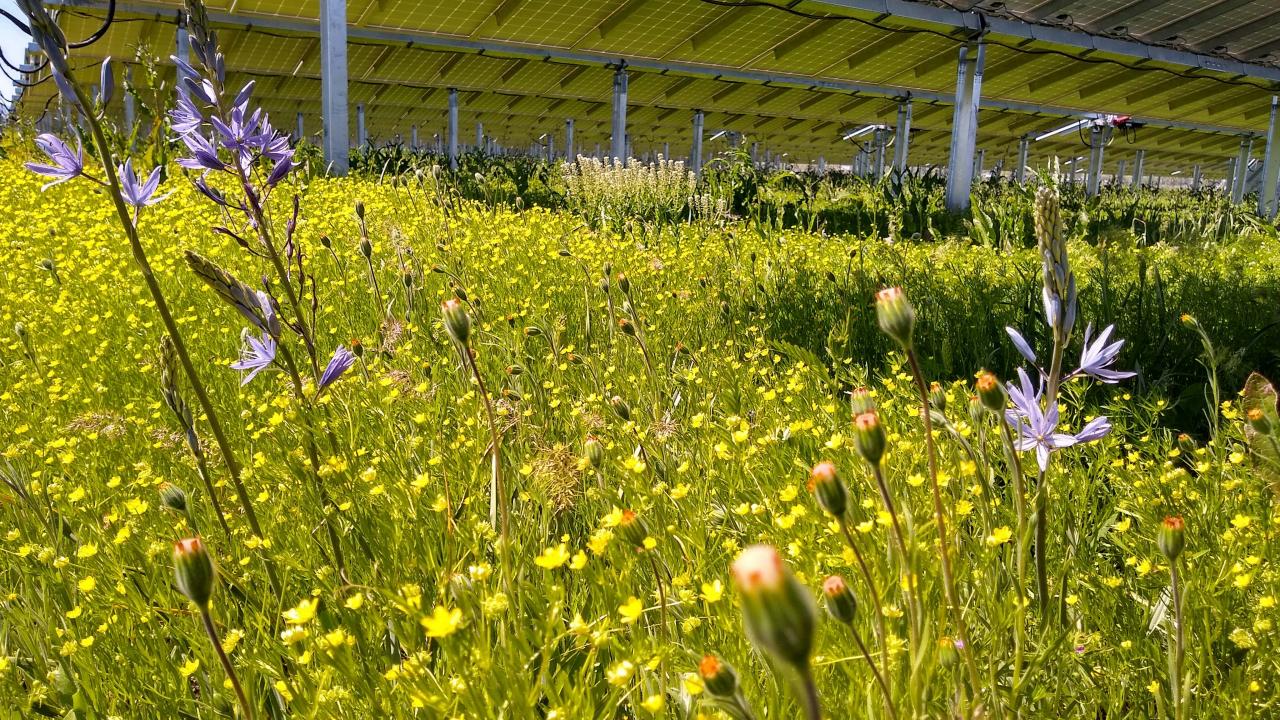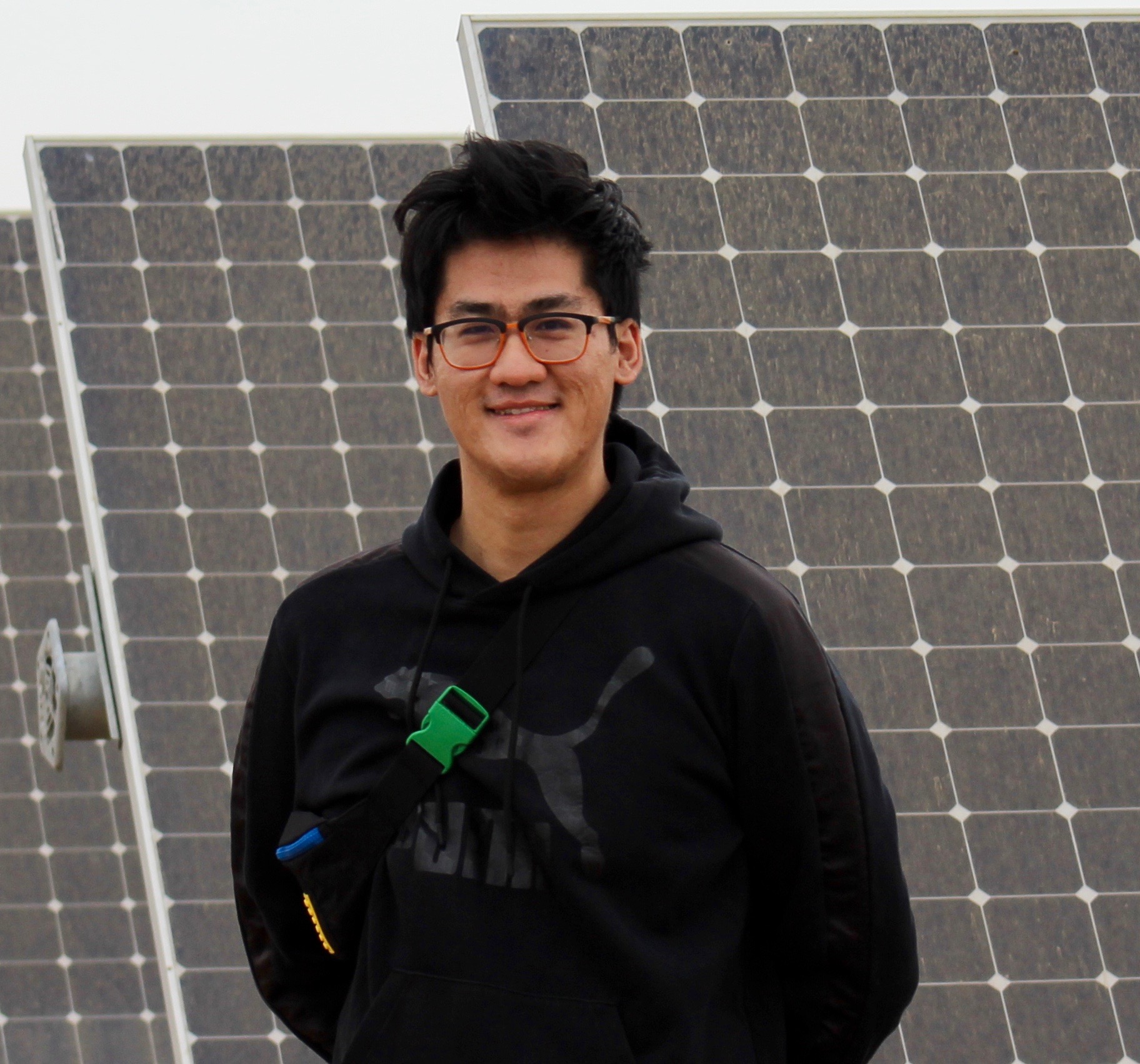
Pollinator habitat at UC Davis solar facility creates a ‘win-win’ scenario
A new project led by the Wild Energy Initiative at UC Davis will study pollinator habitat restoration at a photovoltaic solar facility operated on campus by SunPower Corp.

“Society faces the challenge of generating food and renewable energy while sustaining essential ecosystems services,” said Steve Grodsky, an assistant research ecologist with the Department of Land, Air and Water Resources. “This study will take an in-depth look at how a successful solar facility here on the Davis campus can help achieve both objectives. Results from this research will be useful to similar operations throughout the Central Valley and beyond.”
The study will focus on interactions between pollinator habitat restoration within the solar facility and several key factors. These include ecosystem services from soils, plants and pollination of nearby crops; reductions in erosion and greenhouse gas emissions; solar energy generation; and best practices for sustainable solar energy development in the Central Valley.
“The combination of photovoltaic solar energy development and pollinator habitat restoration may provide a win-win scenario for clean energy generation, climate change mitigation and maintenance of ecosystem services such as pollination services to agricultural production,” Grodsky said.
The solar energy pollinator project will be led by Wild Energy Initiative doctoral student Yudi Li, under the supervision of Wild Energy co-directors Rebecca R. Hernandez, an assistant professor in LAWR, and Grodsky, co-founders of the Wild Energy Initiative, housed in the UC Davis John Muir Institute of the Environment. Learn more about the initiative here.
The solar facility currently generates 16.3 megawatts, 14 percent of UC Davis’ electricity use. Learn more about the origins of the SunPower solar facility in a 2014 UC Davis news release here.